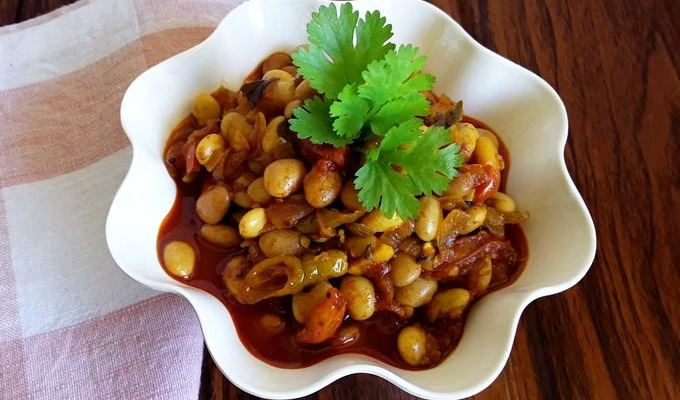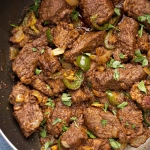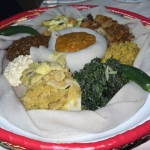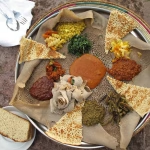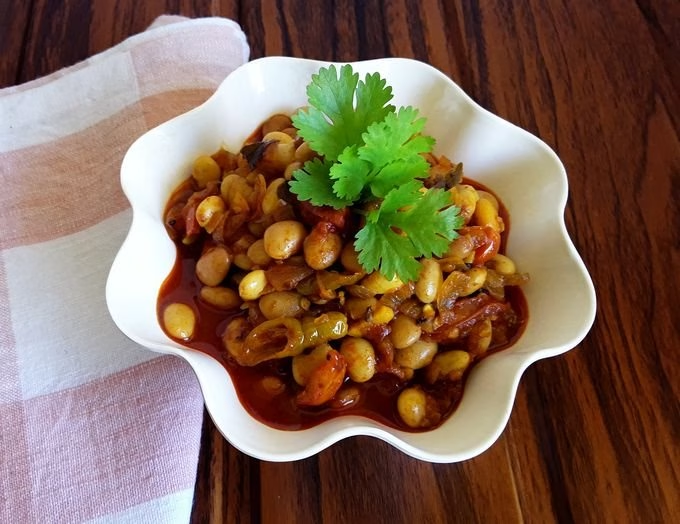
If you’re searching for a hearty and flavorful dish, Lablab Wat With Qicha might just become your new favorite. This traditional Ethiopian stew, rich in spices and textures, showcases the wonderful harmony of lentils with a unique twist of Qicha. Originating from the vibrant Ethiopian cuisine, Lablab Wat is revered not only for its taste but also for its cultural significance, often served during festive occasions and family gatherings.
In this guide, you will learn not only how to make Lablab Wat With Qicha at home, but also about its ingredients, variations, and the nutritional value it offers. If you’ve ever wondered about the perfect blend of spices and how to achieve that authentic flavor, you’re in the right place!
Ingredients
| Ingredient | Measurement | Description |
|---|---|---|
| Split Peas | 2 cups | Rich in protein, split peas are the star of this dish, providing a creamy texture when cooked. |
| Onion | 1 large, chopped | Onions form the aromatic base of Lablab Wat, adding depth and sweetness to the stew. |
| Garlic | 4 cloves, minced | Fresh garlic enhances the aroma and depth of flavor in Lablab Wat With Qicha. |
| Ginger | 1-inch piece, minced | This zesty root adds warmth and a touch of spice, balancing the stew perfectly. |
| Berbere Spice | 2 tablespoons | Berbere is a traditional Ethiopian spice blend that brings heat and complexity to the dish. |
| Tomatoes | 2 medium, diced | Tomatoes add richness and acidity, brightening up the flavors in Lablab Wat. |
| Qicha | 2 cups, cut into small pieces | Qicha is a type of flatbread that complements the stew beautifully, soaking up all the delicious flavors. |
| Vegetable Oil | 2 tablespoons | Used for sautéing, vegetable oil creates a luscious base for the stew. |
| Water | 4 cups | Water helps in cooking the split peas to a tender consistency. |
Step-by-Step Instructions
- Prepare the Ingredients – Start by gathering all your ingredients. Chop the onion, mince the garlic and ginger, and dice the tomatoes. Cutting everything in advance makes the cooking process smoother and faster.
- Cook the Base – In a large pot, heat the vegetable oil over medium heat. Add the chopped onions and sauté until they are golden brown, which typically takes about 5-7 minutes. This caramelization step is crucial for developing flavor in your Lablab Wat With Qicha.
- Add Garlic and Ginger – Stir in the minced garlic and ginger into the pot, cooking for an additional 2-3 minutes until fragrant. The aroma will fill your kitchen, hinting at the delicious stew to come.
- Incorporate Spices – Sprinkle in the Berbere spice and stir. This is where the magic happens! The spices will toast in the oil, releasing their full flavors and creating a savory foundation for the stew.
- Add the Tomatoes – Toss in the diced tomatoes and stir well. Cook until they soften and begin to break down, about 5 minutes. This adds acidity and a natural sweetness to Lablab Wat.
- Simmer with Split Peas – Add the split peas and water, bringing everything to a boil. Once boiling, reduce the heat to a simmer, cover, and let it cook for about 30-40 minutes, or until the split peas are tender.
- Finish with Qicha – Once the split peas are cooked, mix in the pieces of Qicha and let it simmer for an additional 5-10 minutes. This allows the bread to soak up the stew’s flavors, turning it into a deliciously hearty meal.
- Serve and Enjoy – Taste and adjust seasoning if necessary. Serve your Lablab Wat With Qicha hot, garnished with fresh herbs if desired, and enjoy every bite!
Pro Tips
- Soak the split peas: If time allows, soaking your split peas for a few hours before cooking can reduce their cooking time and improve digestibility.
- Tempering spices: Always toast your spices in oil before adding other ingredients to enhance their flavors.
- Qicha alternatives: If you can’t find Qicha, feel free to use any flatbread like naan or pita to soak up the delicious stew.
- Adjust spice levels: If you prefer a milder taste, reduce the amount of Berbere used, or even substitute with paprika.
- Garnish: Fresh cilantro or parsley on top adds freshness and a lovely color contrast to your dish.
Nutritional Information
| Nutrient | Per Serving (1 cup) |
|---|---|
| Calories | 320 |
| Protein | 15g |
| Carbohydrates | 55g |
| Saturated Fats | 1g |
| Fiber | 12g |
| Cholesterol | 0mg |
| Sugars | 3g |
| Fat | 6g |
FAQs
What is the best way to store Lablab Wat With Qicha?
Store it in an airtight container in the refrigerator for up to 4 days. Reheat gently on the stove or in the microwave.
Can Lablab Wat With Qicha be made vegan or gluten-free?
Yes! This recipe is naturally vegan. For gluten-free options, ensure that the Qicha or any substitute bread is gluten-free.
What are the best side dishes to serve with Lablab Wat With Qicha?
Pair it with a fresh salad, spicy pickles, or a yogurt sauce for a refreshing complement to the rich flavors.
How long does it take to prepare Lablab Wat With Qicha?
Including soaking time, it usually takes about 1.5 hours to prepare and cook this dish.
Can I freeze Lablab Wat With Qicha for later?
Absolutely! Lablab Wat freezes well. Just make sure it’s cooled completely before placing it in a freezer-safe container.
How spicy is Lablab Wat With Qicha?
The spice level varies based on how much Berbere you use. Adjust to your preference for a milder or spicier taste.
Can I add vegetables to Lablab Wat With Qicha?
Definitely! Feel free to add veggies like carrots, bell peppers, or spinach during the cooking process for added nutrition.
What other dishes use Qicha?
Qicha pairs well with many Ethiopian stews such as Doro Wat (chicken stew) and Misr Wat (lentil stew), highlighting its versatility.
Creating Lablab Wat With Qicha at home is not only rewarding but also delicious. The layered flavors and textures will surely impress your family and friends. Remember, cooking is about experimenting and enjoying—don’t hesitate to tweak the recipe to suit your taste! When you give this recipe a try, we’d love to hear about your experience. Do share your thoughts and variations in the comments below!
Tried this Lablab Wat With Qicha recipe? Let us know your experience in the comments!


